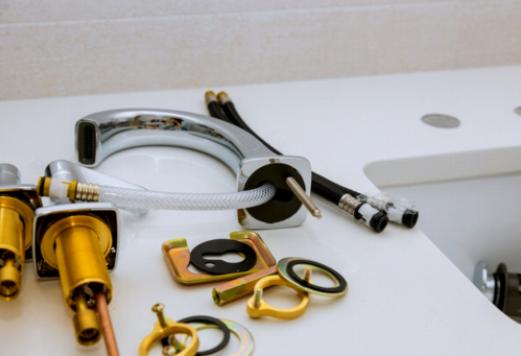The Ultimate Guide to Clearing a Blocked Drain in Your Home
22 February 2026 by Jannat R.A blocked drain in your home can quickly escalate from a minor inconvenience to a major headache. Fortunately, with the right tools and know-how, you can tackle this common household issue on your own. In this comprehensive guide, we will walk you through the steps to identify the problem, choose the appropriate tools, implement DIY methods to clear the blockage, and take necessary safety precautions. We will also discuss when it may be time to seek professional help, as well as maintenance tips to prevent future clogs. Whether you're dealing with a clogged sink, shower, or toilet, this guide will equip you with the information you need to keep your drains flowing smoothly.

Identifying the Problem
The first step in clearing a blocked drain is to accurately identify the problem. Signs of a blocked drain include slow drainage, gurgling noises, unpleasant odors, or water backing up in sinks or toilets. By paying attention to these warning signs, homeowners can quickly pinpoint the location and severity of the blockage, allowing them to take the necessary steps to resolve the issue effectively.Choosing the Right Tools
Before you begin any DIY methods to unblock your drain, it's important to gather the necessary tools to ensure a successful outcome. Some of the essential tools you may need include a plunger, a drain snake, a plumbing auger, and a pair of rubber gloves. These tools will help you effectively tackle the blockage and clear your drain in no time. It's also important to choose tools that are appropriate for the type of drain you are working on, whether it's a sink, bathtub, or shower drain. By having the right tools at your disposal, you can save time and effort in clearing the blockage and restoring proper drainage in your home.DIY Methods to Unblock Drains
When faced with a blocked drain in your home, there are several DIY methods you can try before calling in a professional. One of the most common and effective methods is using a plunger to try and dislodge the blockage. Simply place the plunger over the drain opening and push and pull in a rapid motion to create suction and hopefully force the blockage out. If the plunger doesn't work, you can also try using a homemade drain cleaner made of vinegar and baking soda. Simply pour baking soda down the drain, followed by vinegar, and then cover the drain opening to let the mixture fizz and hopefully break up the blockage. Another DIY method to try is using a drain snake or auger to physically remove the blockage from the drain. You can purchase a drain snake at most home improvement stores and carefully insert it into the drain to try and break up or pull out the blockage. Lastly, you can also try using a mixture of hot water and dish soap to flush out the blockage. Simply heat up a pot of water, mix in some dish soap, and pour it down the drain to hopefully break up and flush out the blockage. These DIY methods can be effective in unblocking drains, but it's important to always use caution and follow safety measures when attempting to clear a blocked drain in your home. If these methods don't work, or if you're uncomfortable trying them yourself, it's always best to call in a professional plumber for assistance.Caution and Safety Measures
When dealing with a blocked drain in your home, it is important to prioritize caution and safety measures to prevent any injuries or further damage to your plumbing system. Here are some key safety tips to keep in mind:1. Before attempting to clear a blocked drain, make sure to wear appropriate protective gear such as gloves and safety goggles to protect yourself from harmful chemicals or bacteria.
2. Always read and follow the instructions on any chemical drain cleaners or DIY solutions you plan to use. These products can be corrosive and harmful if not used correctly.
3. Do not mix different chemicals together as this can create toxic fumes or dangerous reactions. Stick to one method at a time and follow the recommended dosage.
4. Avoid using excessive force or sharp objects to clear a blockage as this can damage your pipes and worsen the problem. Use gentle methods such as a plunger or drain snake to dislodge the clog.
5. If you are unsure of how to safely clear a blocked drain, it is best to seek professional assistance. Plumbers have the knowledge and experience to handle difficult blockages without causing damage to your plumbing system. By following these caution and safety measures, you can effectively clear a blocked drain in your home without putting yourself or your plumbing at risk. Remember to prioritize safety at all times to ensure a successful and efficient resolution to the problem.